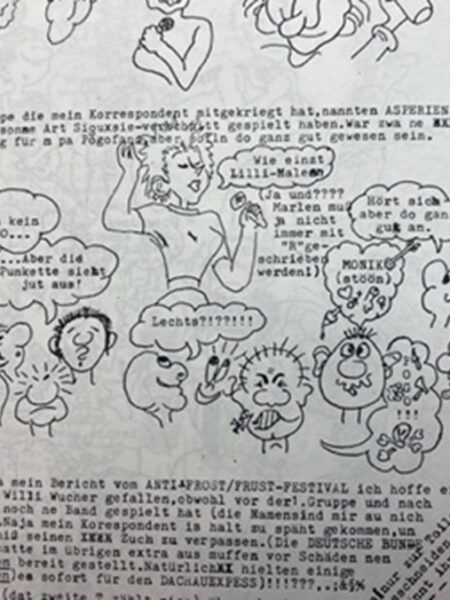- Введение
20 век – век двух мировых войн, авторитарных режимов, таких как Советский Союз, нацистская Германия и фашистская Италия. В стране обнаружены случаи подъема этого режима.
А это также был веком и распадом Советского Союза, включавшего 15 стран, имевших место рождения из самых принадлежащих одному государству своего времени. Однако для хранения своих сил и порядка внутри страны советской власти необходимо иметь мощное влияние на пропаганду в братских странах. В своем исследовании я провожу советской пропаганды общественного поведения, культурных запретов и запретов на территории Узбекской ССР и города Ташкента, поскольку он был оскорблен Узбекской ССР.
My time frame in this work will be mainly focused on the period between 1925 and 1950, since it was during around this period of time, namely in 1924, that the territorial delimitation took place and the Uzbek SSR was formed and, after that,propaganda work began to be carried out further in my time frame. This time frame also includes the important period of 1941-1945 of the Great Patriotic War and related motivational slogans and propaganda for the people of Uzbekistan, clearly demonstrating how propaganda was a tool to motivate and elevate people and contributed to the rallying of the population of Tashkent. For example, I took the years of the Second World War and the family of blacksmiths Shomakhmudov, who adopted 15 children from all countries of the Soviet Union. And 1950 is my completing year of analysis.
Also in my project, I will give examples from real propaganda sources used by the Soviet regime. From various sources and interviews with people who personally lived in the Soviet Union, I tried to give the most clear idea of life in that era for the inhabitants of the Uzbek SSR in the city of Tashkent. I also tried to get information about that period and the real conditions of life and educational environment of the Bolshevik period from the lips of people of various professions who lived at that time. My project can give new information about Soviet propaganda since in the Uzbek SSR dealing with propaganda required very precise tactics due to nationalist movements and patriotic sections of the population and intelligentsia that encouraged people to restore the old traditional order. And so the propaganda was very strong and updated regularly.
Propaganda to strengthen the regime
In the period after the annexation of the territories of the Emirate of Bukhara, the Kokand Khanate and the territories of the Kharezm Khanate, a territorial delimitation was carried out and the Uzbek
SSR was founded. On the territory of the Uzbek SSR, Tashkent was the capital. And the regime of government was a Sovietone. People lived in a new country, and the first thing the regime had to do was to strengthen its power; for this, a special tool was needed, namely strong propaganda.
Politics on the territory of Tashkent also had great propaganda both in public communication and in the educational environment, where the Soviet system and the policy of socialism were fully glorified. This support sometimes increased when it mattered to the regime, such as when World War II broke out or some nationalist movements started. And sometimes it decreased in very stable situations. A totalitarian form of government was founded and freedom of speech was eliminated, people were forced to inform on each other and often people were arrested for mistakes committed against the regime, but in the worst case they were liquidated, repressed.
And on the positive side, we can say a reduced level of corruption and low unemployment came to be in the country.
Public perceptions of propaganda
Over time, the regime in the country only became stronger, the regime’s authority in the eyes of the people only grew, and as a result of the abolition of the old order and the introduction of the ideology of Marxism and Leninism into the masses, the propaganda part of education was also introduced into the educational environment.
Naturally, in Tashkent this propaganda has borne fruit over time. And the citizens of Tashkent gradually began to forget their cultural values, their history and fully support the regime.
And when the Second World War broke out under the slogans of the Socialist leadership, the people of Tashkent got excited and the Uzbek SSR played the role of a raw material base during the Second World War. And after the victory over the enemy, the Soviet regime needed its own hero and they chose the poor blacksmith Shomakhmudov, who managed to adopt 15 children during the war. After that it began to promote him as an example of the brotherhood of peoples and promote the idea of love for communist comrades. Regime propagandists wrote about him, and he was portrayed as an example of a Soviet person in Tashkent. A monument was erected to him and his adopted children in the center of Tashkent, which still stands and clearly shows the ideological atmosphere of that period of time.
For a clearer understanding of the motives of the blacksmith Shomakhmudov, who, being poor, adopted 15 children, and in order to more clearly understand the influence of propaganda on his decision to adopt
children, I interviewed Olga Nikolaevna, a neighbor of the Shomakhmudov family, who lived in a house opposite the one of their family. I asked her about the possible reasons the blacksmith adopted the children. Her answer highlights the blacksmith’s attachment to the Soviet polity.
As far as I remember, everything was fine in their family, although they were not rich, but they did everything for their adopted children and took pains to feed everyone, and their children loved them for it.
Their children were cheerful and even we could not imagine that this family could be unhappy. So I think it was a very good family. You know, I think no one forced him, he just saw the hopelessness in this war and with all his might wanted to help his country like other citizens, and at that it was very difficult to adopt 15 children, but he was able to do it and thereby savedthese wonderful children from starvation and maybe from the death. I think in difficult times for the country, very few people would be able to do this, given the crisis of the war and the lack of food.
Also, in order to understand the extent and influence of propaganda on the population of Tashkent, I interviewed representatives of various professions in the Soviet regime who in one way or another witnessed the propaganda of the regime and lived in Tashkent under the control of the communist Party.
I did a short interview with a professor of History at an educational institution in the Soviet Union, Saida Burieva. Andmy main question was on
her opinion about life in the Uzbek SSR, and the city of Tashkent in particular, and about people’s feelings about Bolshevik rule in the territory of Tashkent.
She briefly answered that propaganda was widespread among the people of Tashkent.
You know, I lived here back in the Soviet regime and life was very difficult, but we coped.
It was relatively easier in Tashkent because it was the capital, and I was young at that time and had just finished my studies and it was difficult in terms of living conditions, but there was always work here. But there were mixed feelings among people, but no one expressed their opinion because they were afraid. The youth was drugged by the ideas of that period and did not understand their culture, but they knew everything about the Bolshevik ideology and we lived in such conditions.
I would state more explicitly, below, that the following two interviews highlight that there were limits to the successful penetration of propaganda, as both interviewees – a veteran who served in the Soviet army, Khairulla Eshkabilov, and Elnora Siddikova, who was a primary school teacher in Tashkent and knew and experienced propaganda in the educational system – mention there was some discontent with the regime.
I gave Eshkabilov questions about Soviet social communication’s influence over the people of that period and whether there was any fear among the people regarding the policy of the
Bolsheviks.
Of course, it was influential, but for everyone in different ways.Someone wanted to secede from the country and did not believe in the ideology of brotherhood, and someone could devote his life to serving the Soviet Union. To tell the truth, people were not afraid of the policy of the regime, but of its reaction to disobedience to the requirements of that period, and therefore in the country they did not say too much in front of people, they did not want someone to inform on them.
As for Siddikova, I asked her about her experience acquaintingstudents with any political public materials of the Soviet Union and the types of propaganda were carried out in schools, for students of that period.
Well, when I was a class teacher at various events, we were instructed to teach children various patriotic poems, and we also taught children all the information regarding our country.
Various activities were carried out so that students would not forget the main goals of the Soviet people, and many circles for children contributed to the education in children of concepts beneficial to the regime. In general, I do not approve of the ideas of the Soviet Union because my cousin was put in prison,because he wanted people to be given more freedom of speech,and I do not want to talk about it because it is difficult for me.
And at the end I did an interview with Mirjon Khamraev, who was a simple proletarian worker in Tashkent under the Soviet regime, and I tried to find out about the working conditions for ordinary workers of that period and the pros and cons of life under the communist dictatorship. I asked him about political work carried out among the workers of his plant and whether he lived better in the Soviet period or now.
Yes, a lot of political work was carried out both among ordinary workers and among the entire population. It was business as usual. We were all party members and worked conscientiously.
In fact, everything remained for me as it was. But I lived well in the Soviet regime to be honest.
In the end, after all my interviews and analysis of various events, I want to say that the propaganda was mostly successful because it convinced the majority of the population of Tashkent.For some time, however, a certain segment of the population was still, although not publicly, neglected by the regime because of its repression and intolerant policy towards other ideologies and traditions and values. In general, people in Tashkent who survived the Soviet Union speak well of it, but there are also those who fell victim to persecution and repression by the ruling regime. And of course propaganda played a key role in the strengthening of the regime. However, not only propaganda, but also other developments, such as the outbreak of World War II, influenced the belief in the unity of the Bolshevik policy in the minds of the citizens of Tashkent.
Conclusion
For the final conclusion, it can be said that in order to win the loyalty of the Tashkent people, the leadership of the USSR wantedto provide a stable life with a developed economy in a strong country. In order to inspire the image of a strong country and ideology, from a young age in schools, people were inspired by the ideas and ideologies of the Soviet government, which was additionally supported by daily news. Depending on the situation, propaganda intensified or was stable, and ordinary hard workers from the countries of the USSR were taken as an example of heroes and shown as an example of an ideal Soviet person. Tashkent is no exception. Blacksmith Shomahmudov is an example of this pattern. The people who lived in Tashkent in the Soviet Union had an ambiguous attitude towards the regime, which is associated with the persecution of people of other ideologies, but the propaganda influenced most people and, in general, the propaganda was partially successful, because until now some people still think back to those times. Based on this, we can say that for many propaganda worked, but for those who suffered from the regime’s policies, it did not. Generally, people held different views of the regime. I believe that propaganda, albeit in part, helped to penetrate the political border separating citizens of Tahskentот режима, и большая часть населения стала лояльной диктатуре . Но я должен уточнить, что одной только пропагандой нельзя было заручиться поддержкой ташкентцев. Только в совокупности с другими инструментами, как производитель репрессии и общественного стимула, пропаганда была успешной.




